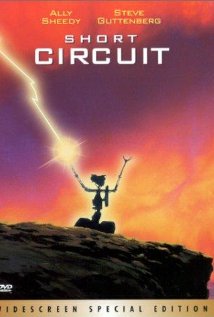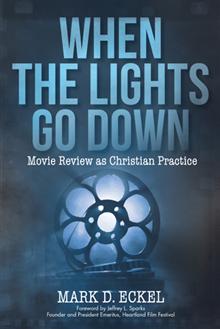

Once we begin to think about what we see, it will impact what we say.

Reflection
It was 1986. The film was Short Circuit.
We sat with friends in the middle of a crowded theater, about three hundred people.
The story is entertaining. A military robot is struck by lightning, suddenly becoming human. The robot quickly gains knowledge and learns by experience. The childlike nature of the machine is contrasted with silly human responses. Ally Sheedy befriends the unusual creature, protecting it from those she deems a threat. Steve Guttenberg, creator of the robot, falls in love with Ally; she in turn allows her suitor access to the robot-now-human.
In a face-to-face meeting, scientist and science experiment dialogue. Earnestly seeking answers to how metal becomes man, Guttenberg’s character is amazed at his original creation. The military, unable to control their latest weapon, seeks to destroy the machine.
“They are coming to kill you,” says the scientist.
“Killing is wrong,” retorts the robot.
“Who told you killing is wrong?” questions the scientist.
“I told me killing is wrong” is the ethically charged response.
Without thinking about the three hundred other people in the theater, I stood up, pointed at the screen, and said in a voice all could hear, “That is not ethically possible!”
Robin, my embarrassed wife, tried desperately to get me back in my seat. All the while, I was fishing for paper and pen to write my thoughts. Once I was back in my chair, Robin whispered in my ear, “Can’t you ever stop thinking?”
The answer is the same after thirty years.
No.
Early in my teaching vocation, I began to train students how to watch movies and how to write movie reviews. Since the early 1990s, classes have watched full-length feature films; interactive responses followed. We engaged Harrison Ford’s scientist, who thought he could control creation in Mosquito Coast. We saw through the wrong-headed, romanticized educational views of human nature from Robin Williams’s Dead Poets Society. We countered errant truth claims resident during Indiana Jones and the Last Crusade.
If you asked my former students now what they remember about my classes then, they would smile and say, “He ruined watching movies for me forever.”
Now adults, past students are training their kids to think about what they are watching.
You can read my philosophy on how Scripture teaches that we should “test the spirits.”[i] You can read my essay, which explains my biblical view of engaging cinema.[ii] You can read my essay, posted on my website which explains my educational approach.[iii] But if you really want to know the end result of interpreting movies from a Christian point of view, ask my students.
And I bet you could even find a few people who would tell you, “Yeah, I remember when this crazed guy stood up in the middle of the auditorium and talked to the screen.”
I still talk to screens today.[iv]
Questions
- What is your favorite movie? Why? Explain your reason in twenty-five words or fewer. Why is the overview statement important?
- What about a movie makes you want to tell others about it?
- Movies connect to what we see and what we cannot see. Agree or disagree? Why or why not?
- In movies: Is truth discovered, reinforced, or disassembled? What corrections will the movie take to expose error?
- Are viewers capable of discerning belief commitments in a film without succumbing to the pitfalls of false teaching? Are moviegoers given the opportunity to see the difference?
Prayer
Benediction: Into the darkness of the movie theater breaks in the Light of life. He answers the questions left lingering in the minds of those left to wonder, so they are not left to wander. Amen.
Further Resources

Mark Eckel. When the Lights Go Down: Movie Review as Christian Practice (Westbow, 2014).
[i] Mark Eckel, “Practicing the Craft of the Cultural Apologist,” warpandwoof.org/cultural-practical/practicing-the-craft-of-the-cultural-apologist.
[ii] Mark Eckel, “A Word Paints a Thousand Pictures,” warpandwoof.org/speeches/a-word-paints-a-thousand-pictures.
[iii] Mark Eckel, “Educational Philosophy,” warpandwoof.org/marks-philosophy/educational.
[iv] From section one “Taking a Stand While Sitting Down,” When the Lights Go Down: Movie Review as Christian Practice (Westbow, 2014), Mark Eckel.
Editor’s note: The first piece in an engaging five part movie review series. If you’d enjoy the opportunity to write a review of a movie’s portrayal of higher education, interaction with an important topic with which you are familiar due to your studies/research, and/or value to your campus fellowship (due to a movie night, discussion group, etc.), please drop Thomas B. Grosh IV (Associate Director of the Emerging Scholars Network) an email. Yes, I’m very interested in hearing from you this summer 🙂
Dr. Mark Eckel is adjunct professor for various institutions, President of The Comenius Institute (website), spends time with Christian young people in public university (1 minute video), hosts a weekly radio program with diverse groups of guests (1 minute video), interprets culture from a Christian vantage point (1 minute video), teaches weekly at his church (video) and writes weekly at his website warpandwoof.org.

1. Scott Pilgrim vs the World. A funny, exciting marvel of visual storytelling with a valuable perspective on what it takes to know another and the effort relationships require.
2. When it inspires a new way of looking at the world that I want to share.
3. Well, as a substantially visual medium, movies clearly connect to what we see. Yet a big part of the art of filmmaking is what is left out — what isn’t in frame, what happens between the cuts — and so they connect to what we don’t see. Also, some movies serve to dramatize normally internal conflicts as external ones (such as when Scott Pilgrim has to fight Ramona’s exes, dramatizing the way we all have to interact with the history of the other people in our lives). That is another way that movies connect with what we don’t see, by allowing us to see it.
4. In my experience, movies are capable of all three — sometimes the same movie.
5. “It is the mark of an educated mind to be able to entertain a thought without accepting it.” It may or may not be Aristotle, but it’s still a useful notion. Or, from Proverbs “A naive person believes everything, but the shrewd person discerns his steps.”
Thank-you for this post Mark! As you may have guessed, I found choosing my favorite movie quite challenging. But nonetheless, I settled upon Star Wars: Episode IV – A New Hope (1977). Why?
Star Wars’ (1977) epic portrayal of good versus evil offered me as a three year old an engaging framework for reality.
The encouragement to summarize what I’ve known about the impact of this film for years through an overview statement offered an avenue for deeper conversation. With Star Wars: Episode VII: The Force Awakens (2015) only a few months away this is particularly applicable. Over the past several months, the Stars Wars “movement” has been an active conversation (accompanied by movie viewing) with my teenage twin girls.
What about a movie makes you want to tell others about it? I love sharing good stories and engaging people in conversation regarding them. And no doubt, good movies connect us to what we see and what we cannot see. Of course, even those pointed in the proper direction seldom tell the whole truth necessary for daily life in an ~ 2 hour stretch. So although I gravitated toward Star Wars’ (1977) epic portrayal of good versus evil, Star Wars borrowed from a deeper understanding of good and evil which it did not fully tell. In the end, even the first trilogy (with Star Wars toys, cards, books and all) was not a strong enough framework for reality (let alone the setback of the prequels!) in the manner which I have come to find/embrace in the Body of Christ guided by the Word and Spirit of God.
As with other storytellers, there is a spectrum in how well one finds truth discovered, reinforced, and/or disassembled. AND it is vital to dialog with them as part of the Body of Christ guided by the Word, Spirit of God, and the redeemed minds of the People of God. Much is to be gained by dialog with films which are more informed by the “true story.” Some films are not worth viewing and it is important to be discerning not only in what one allows into the head and heart, but how one stewards resources (e.g., time, money, relationships). I have found a number of online resources quite helpful in the this process, even secular ones such as the International Movie Database (IMDB).